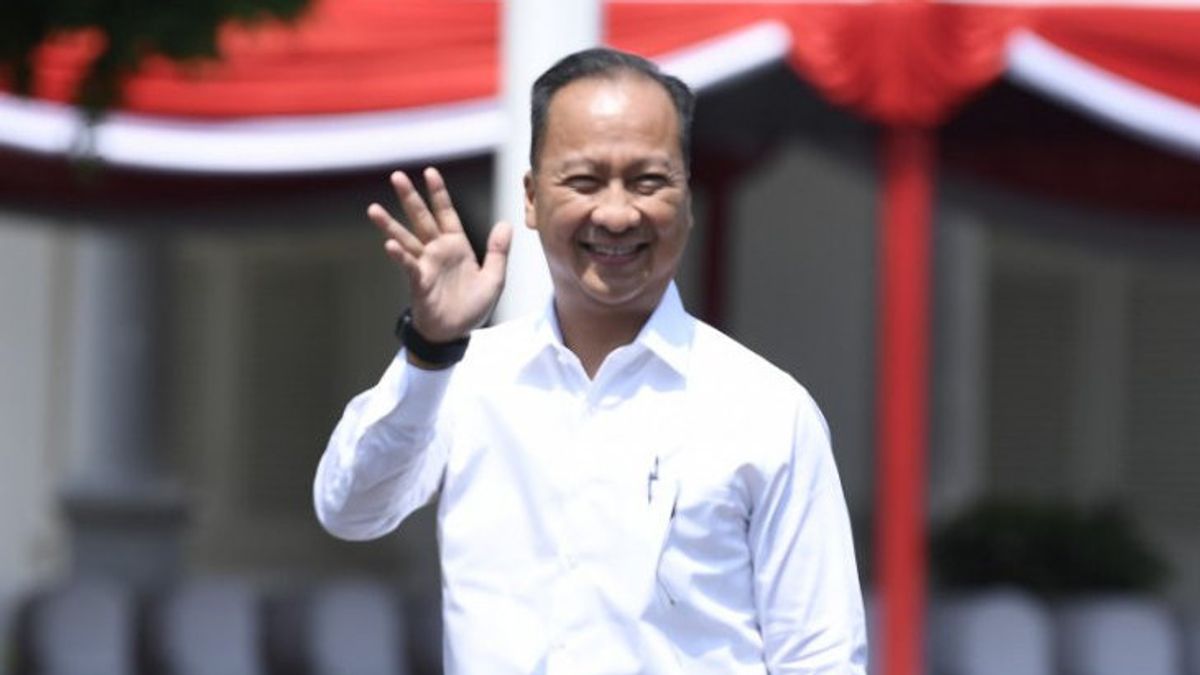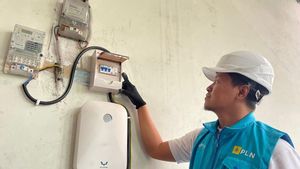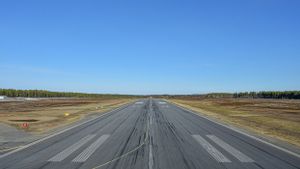JAKARTA - Minister of Industry Agus Gumiwang Kartasasmita held a meeting with two industrial companies in Germany.
This meeting is in order to discuss opportunities for the development of the downstream industry and new and renewable energy (EBT) in the country.
The first visit he made was to ecogreen oleochemical, which is an industry that produces fatty acids and other products from downstream palm oil.
The products produced through the company's cutting-edge technology are used by other industries as raw materials for detergent products, skin care and cosmetic components, agricultural chemicals, textile industry, printing industry, food industry, and medicine.
"Downstreaming is able to increase the added value of palm oil commodities. We see that the technology used by ecogreen oleochemical can support the downstream industry in Indonesia. Therefore, we have a dialogue with ecogreen oleochemical to open up this opportunity," said Minister of Industry Agus Gumiwang Kartasasmita in a written statement, Monday 30 May .
Agus added, in the last 10 years, exports of palm oil derivative products from Indonesia increased significantly, from 20 percent in 2010 to 80 percent in 2020.
Currently, 168 downstream CPO products are produced in Indonesia.
Meanwhile, in 2011 there were only 54 types of downstream CPO products.
Previously, in 2020 the export value of palm products amounted to 19.89 billion US dollars, then increased by 56.63 percent in 2021.
The workforce is 4.20 million direct workers and 12 million indirect workers.
The B30 program, which is one of the products of the palm oil downstream policy, has been able to reduce diesel imports by 9.02 million kiloliters in 2021.
"This means that there are foreign exchange savings of 4.54 billion US dollars or equivalent to Rp. 64.45 trillion. The program is also able to reduce greenhouse gas emissions by around 24.4 million tons of CO2 equivalent," he continued.
In line with the focus of the 2022 World Economic Forum Annual Meeting on NRE, the Minister of Industry held a meeting with the APUS Group, which has the APUS Zero Emission initiative.
As a European Aviation Safety Agency (EASA) design agency, APUS Group is researching how hydrogen can be used safely and economically.
"Research results and experience from various projects and collaborations are applied to the APUS i-2 and APUS i-5 products to build a hydrogen fuel cell hybrid-electric aircraft with excellent performance," Agus explained.
Hydrogen is an alternative energy source for fuel that can be applied to the industrial sector, transportation, power generation, portable power, and other sectors.
The government through the Ministry of Industry has begun to initiate the application of hydrogen utilization in Indonesia, both as a source of power for electricity generation and as fuel for land, air, and sea transportation modes.
Hydrogen as a substitute for fossil energy is currently still being developed in the power generation sector.
Now, the technology is a hybrid with a combination of hydrogen and natural gas (grey hydrogen), which still produces carbon emissions.
"We hope to be able to include blue hydrogen at a later stage," said the Minister of Industry.
In the national automotive industry roadmap, the Ministry of Industry has set a target of 20 percent of the use of electric battery-based vehicles by 2025.
Hydrogen-based fuel cell technology for the industrial production of environmentally friendly vehicles is also included.
The English, Chinese, Japanese, Arabic, and French versions are automatically generated by the AI. So there may still be inaccuracies in translating, please always see Indonesian as our main language. (system supported by DigitalSiber.id)











